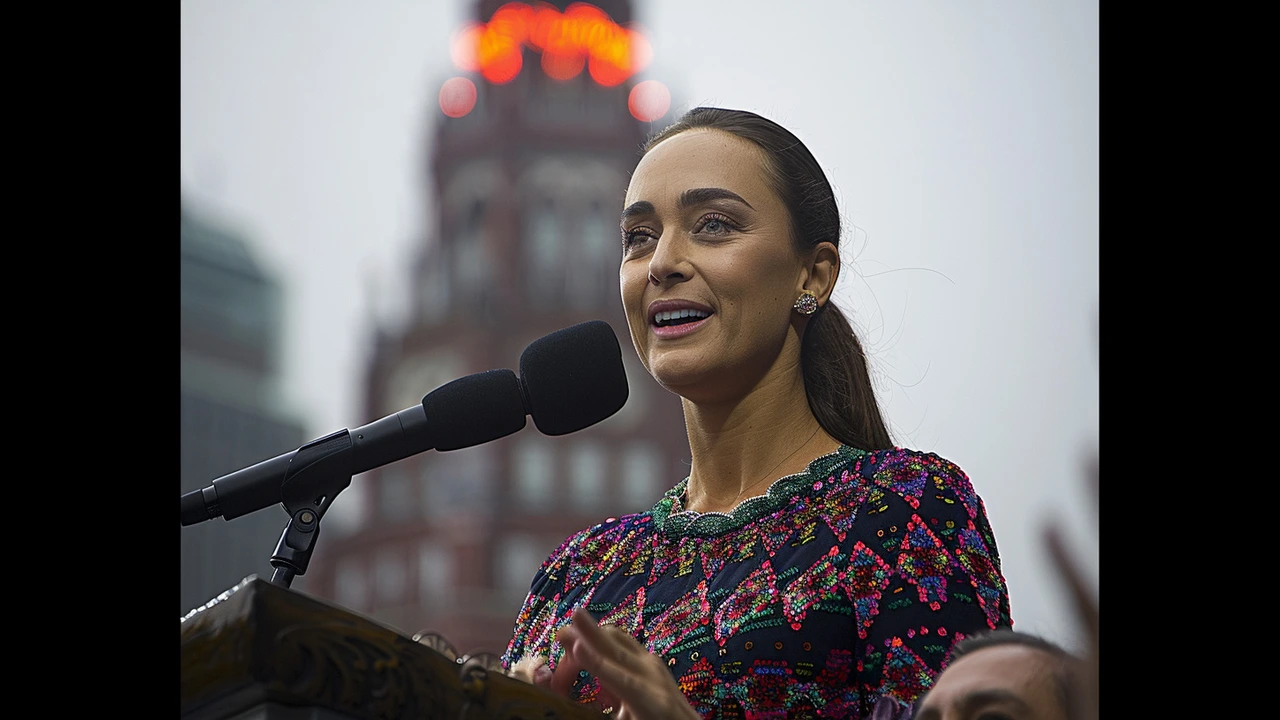Claudia Sheinbaum Poised to Become Mexico's First Female President, Historic Victory Nears

Claudia Sheinbaum on the Brink of Historic Presidential Victory
Mexico stands at a monumental crossroads as Claudia Sheinbaum emerges as the likely first female president of the nation. Preliminary results from the Quick Count suggest that Sheinbaum, who previously served as the mayor of Mexico City, has garnered between 58.3% and 60.7% of the votes. Her probable victory heralds a significant shift in Mexico's political landscape. Not only is she set to be the first woman to hold the presidency, but she will also be the first president of Jewish heritage, a rarity in Mexican politics.
The Road to Victory
Claudia Sheinbaum's journey to this historic moment has been underpinned by her steadfast alliance with outgoing President Andrés Manuel López Obrador. Her association with the Morena party and the extensive grassroots support it commands played a crucial role in propelling her candidacy. The 61-year-old secular leftist drew on her background as a climate scientist and public servant, appealing to a broad base of voters. As the mayor of Mexico City, she had built a reputation for progressive policies and effective governance, further solidifying her credentials for the presidency.
Despite her impressive lead, Sheinbaum faces a fractious political environment marred by high levels of violence. Since the beginning of the campaign in September, more than 20 political figures have been killed. These troubling circumstances cast a long shadow over the election process and present significant hurdles for the incoming administration.
What Her Presidency Means for Mexico
Sheinbaum has pledged to carry forward López Obrador's legacy. This includes substantial social programs such as pensions for senior citizens, scholarships for students, and the provision of free fertilizers for small-scale farmers. These initiatives have been pivotal in securing her widespread support, particularly among the lower-income and rural populations. Her electoral promises suggest a continuation of the populist policies that have characterized López Obrador's tenure.
However, the challenges are significant. Mexico's high crime rates and entrenched culture of impunity are longstanding issues that require urgent attention. Sheinbaum's ability to address these problems will be critical in defining her presidency. Her approach to tackling corruption, improving public safety, and fostering economic stability will be closely scrutinized both domestically and internationally.
Opposition and Electoral Dynamics
The electoral landscape has been marked by stark contrasts. Opposing candidate Xóchitl Gálvez, who received between 26.6% and 28.6% of the votes, represents a different vision for Mexico's future. Gálvez's campaign focused on economic liberalization and national security, appealing primarily to urban and middle-class voters. Despite a spirited campaign, her vote share fell significantly short of Sheinbaum's commanding lead.
Jorge Álvarez Máynez, another contender, finished in third place with 9.9% to 10.8% of the vote. His candidacy, while not as competitive, underscores the fragmentation of opposition forces in Mexico. The disparate agendas and voter bases reflect the complex socio-political fabric of the country.
Voter Turnout and Political Engagement
Voter turnout for this election was noteworthy, with preliminary figures indicating between 58.9% and 61.7% of the nearly 100 million-strong electorate participating. This level of engagement is a testament to the profound significance of this election and the pivotal role it plays in shaping Mexico's future. The robust participation signals a highly engaged population eager to influence the country's direction at this critical juncture.
The International Perspective
Globally, Sheinbaum's ascension to the presidency is likely to attract considerable attention. As Mexico's first female president, her leadership will be closely watched by international observers interested in Latin America's evolving political dynamics. Her policies on climate change, economic development, and social equity will have implications beyond Mexico's borders, influencing regional and global discourse.
In addition, her academic background in environmental science positions her uniquely to address pressing global issues like climate change. Her presidency could herald a more proactive stance on environmental policies, aligning Mexico with international efforts to combat climate change and foster sustainable development.
A New Chapter for Mexico
Claudia Sheinbaum's potential presidency marks a new chapter for Mexico, reflecting both the progress and the challenges that lie ahead. Her victory is a significant milestone in a country where gender and heritage have often been barriers to political leadership. Yet, the true test of her success will be her ability to unite a divided nation, implement meaningful reforms, and navigate the turbulent waters of Mexican politics.
As Mexico and the world await the final confirmation of the election results, the anticipation is palpable. Claudia Sheinbaum is on the cusp of making history, and her leadership promises to be a transformative force in the years to come. The eyes of the nation and the international community will be on her as she steps into this momentous role, ready to shape the future of Mexico.